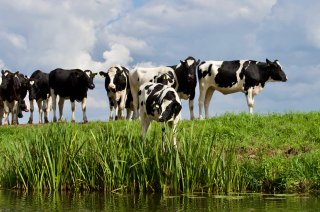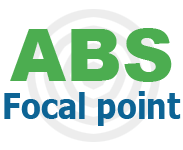
Dutch policy on Access and Benefit-Sharing
The Dutch Government adopted the policy document Sources of Existence, which serves as a guideline for its programmes and activities in the field of genetic resources, in 2002.
This document contains chapters on government objectives, framework agreements on biodiversity conservation, sustainable use and international cooperation. You can access a full version of the policy document and the executive summary by clicking on the links given below.
The document states that the government does not deem it necessary to exercise its national sovereignty regarding access and use of genetic resources occurring in the Netherlands in national legislation (see section 3.2). The government also favours a facilitated access policy, as open as possible, for exchange of genetic resources between countries, based on prior informed consent and in full recognition of the interests of various stakeholders (see section 3.1). It does not require users of genetic resources under its sovereignty to obtain PIC from the government. However, other legislation, such as species or habitat protection, may apply and access may not be free of obligations.
A national law to implement EU Regulation 511/2014 in the Netherlands has come into force on 23 April 2016. The explanatory memorandum accompanying the law states that no specific rules governing access to genetic resources occurring in situ in the Netherlands will apply.
Collections of plant genetic resources for food and agriculture
The Dutch government and the Centre for Genetic Resources in the Netherlands (CGN) have entered into an agreement allowing all collections maintained in CGN under the sovereignty of the Netherlands to be made available to users under the terms and conditions of the standard material transfer agreement (SMTA) of the International Treaty on Plant Genetic Resources for Food and Agriculture (ITPGRFA), regardless of whether or not the genetic resources in question are listed in Annex I of the ITPGRFA. The Netherlands has also placed collections in the multilateral system (MLS) of the Treaty (see Implementation of the ITPGRFA below).
Furthermore, the Dutch government encourages private collection holders to make their collections available to third parties in accordance with the provisions of the Convention on Biological Diversity. Major public collection holders include the Westerdijk Fungal Biodiversity Institute and the various botanical gardens in the Netherlands. Whereas the Fungal Biodiversity Centre makes use of its own MTA, most botanical gardens follow the IPEN Code of Conduct and the associated MTA. Both MTA's only cover use for non-commercial purposes.
Implementation of the ITPGRFA
In order to implement its policy of facilitated access, the Netherlands has reported to the Secretariat of the ITPGRFA that the crop collections containing genetic resources listed in Annex I of the ITPGRFA maintained by the CGN in Wageningen, the Solanaceous crop collection of Radboud University Nijmegen, and the apple collections of the North-Holland Pomological Society and the Northern Pomological Society have been placed into the MLS and thus form the Dutch contribution to this system.
Svalbard repository
The collections of the CGN, encompassing almost 23,000 accessions of 30 different crops, have been safety duplicated in other European gene banks as well as in the global repository in Svalbard, Norway, to ensure the long-time conservation of the genetic diversity of these crops.
AEGIS
The Dutch Government has signed a Memorandum of Understanding for the establishment of A European Genebank Integrated System (AEGIS) which stipulates the use of the terms and conditions of the SMTA of the ITPGRFA for the exchange of non-Annex I crops under AEGIS. In this context, the Dutch Ministry of Economic Affairs has agreed with CGN that the CGN collections of genetic resources not listed in Annex I of the International Treaty shall be distributed in accordance with the terms and conditions of the SMTA of the International Treaty.
FAO
The Netherlands has also reported on its ABS policy in the relevant national reports for the FAO State of the Worlds' Plant, Animal and Forest Genetic Resources. These reports are available on this page under ‘National reports’. The FAO State of the World reports on genetic resources can be found on the page Downloads and links.
